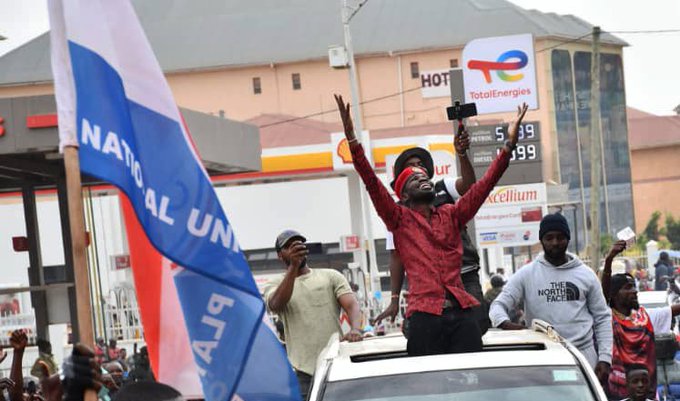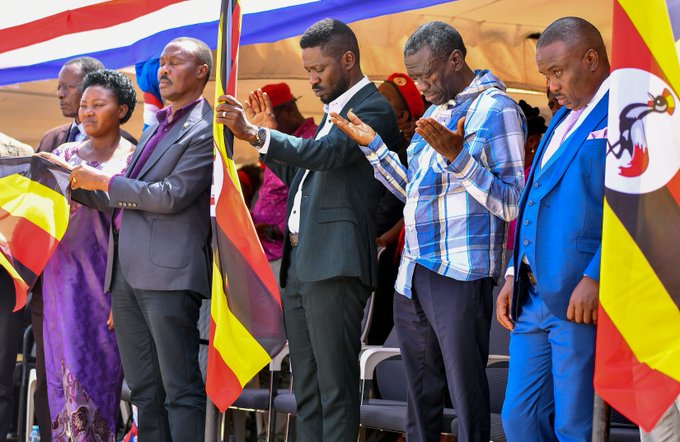The political landscape in Uganda is undergoing a significant transformation as the 2026 general elections approach, with the opposition seeking to consolidate its strength against President Yoweri Museveni’s four-decade rule. The latest development is the formal invitation extended to Robert Kyagulanyi, popularly known as Bobi Wine and leader of the National Unity Platform (NUP), to join a coalition between the People’s Front for Freedom (PFF) and the Alliance for National Transformation (ANT). This move signals a potential realignment of opposition forces and could reshape the dynamics of the upcoming electoral contest.

Background: A Fractured but Ambitious Opposition
Uganda’s opposition has long been characterized by fragmentation, personal rivalries, and ideological differences, which have historically undermined efforts to present a unified challenge to the entrenched National Resistance Movement (NRM) regime. Previous attempts at forming alliances have often been marred by mistrust and competing ambitions. However, the growing sense of urgency to end Museveni’s extended tenure has reignited calls for opposition unity.
The PFF, a newly registered party led by Kampala Lord Mayor Erias Lukwago, emerged from a split within the Forum for Democratic Change (FDC) in 2023, bringing together former FDC leaders and activists disillusioned with the party’s direction. ANT, founded by retired General Mugisha Muntu after his departure from FDC in 2018, has consistently advocated for institutional reform and non-confrontational approaches to political change. Both parties have recognized the necessity of coalition-building to amplify their impact.
The Invitation to Bobi Wine: A Strategic Calculus
According to sources familiar with the ongoing negotiations, PFF and ANT leaders are finalizing a cooperation agreement and have actively sought to broaden the coalition by engaging other opposition actors. A formal letter from ANT’s national coordinator invited Bobi Wine to the coalition’s launch event at Hotel Africana in Kampala, underscoring the desire to bring Uganda’s most prominent opposition figure into the fold.
Bobi Wine’s NUP has rapidly become the largest opposition party, especially popular among Uganda’s youth and urban voters, and his candidacy in the 2021 presidential election galvanized a new generation of activists. His inclusion in the PFF-ANT alliance would not only boost the coalition’s electoral prospects but also send a powerful message of unity to voters disillusioned with opposition infighting.
Challenges and Opportunities
Despite the optimism surrounding this new coalition, significant challenges remain. Uganda’s opposition operates in a highly repressive environment, facing restrictions on public gatherings, surveillance, and the ever-present threat of state intimidation. The silence and caution exhibited by political parties in recent months reflect a strategic response to these constraints, with leaders quietly organizing at the grassroots level and building support structures in anticipation of the official campaign season.
Internal dynamics also pose hurdles. The opposition’s history of power struggles, divergent priorities, and personal ambitions has often led to fragmentation. For the coalition to succeed, leaders will need to set aside individual aspirations and focus on a shared vision for Uganda’s future. As one opposition MP noted, “We can’t afford to be divided if we want to bring about real change in Uganda”.
A New Era for Opposition Politics?
The PFF-ANT invitation to Bobi Wine represents a critical test of whether Uganda’s opposition can overcome its legacy of division and present a credible alternative to the NRM. If successful, the coalition could harness the combined strengths of its constituent parties—PFF’s organizational energy, ANT’s institutional approach, and NUP’s mass appeal—to mount the most formidable challenge yet to Museveni’s rule.
Observers will be watching closely as the coalition’s launch unfolds and as negotiations progress. The coming months will reveal whether this alliance can translate symbolic unity into practical political momentum, or whether old patterns of mistrust and rivalry will resurface. For now, the invitation to Bobi Wine marks a pivotal moment in Uganda’s opposition politics and a potential turning point in the struggle for democratic change.

